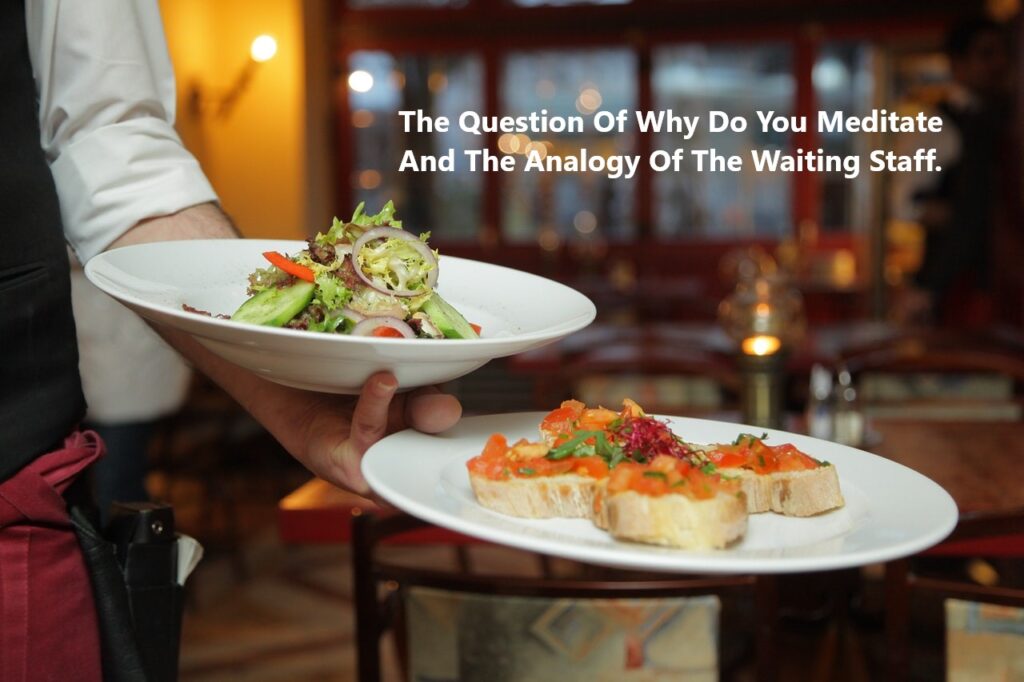Recently I was asked by someone why do you practice mindfulness? Personally, I do not subscribe to the notion that I practice mindfulness. In essence, formally I practice meditation which is conducive to the cultivation of mindfulness. As in essence within the formal practice of meditation mindfulness is one of the faucets cultivated through such practice. Mindfulness is one of the primary faucets we actually try to cultivate through meditation or what could be called “awareness”. So yes, I practice meditation to cultivate mindfulness to be more aware of present experience.
But that’s not the whole story.
Why? Because awareness is just the first step. If we just stop at the awareness of present experience, we might end up in a passive mode of being the viewer of whatever we are going through. We also have to cultivate and maintain an alertness to the contents of our awareness. As portrayed in a previous post. We need to be aware of what we are experiencing but we also have to be alert to what is arising as a direct consequence of our experience.
The analogy of the “waiting staff”
To reflect this, I like the analogy of the waiting staff. It’s like the time when you go to a restaurant and the waiting staff promptly greets you, seats you and in a timely manner takes your order. After some time, they bring your order and discreetly go away. As soon as you need something or start searching for something on the table. Promptly the waiting staff appear asking if you need something. You tell them what you need they provide it and discreetly go away.
Here we see that the waiting staff were not only aware of there surrounding but also alert to what was going on.
Likewise, it’s like when you are looking at the waiting staff carrying the food to different tables. They are aware attentive to of the space around them, the plates and trays they are carrying elegantly gliding in between the tables. While at the same time being alert to the others with whom they are working and alert to the needs of the people they are serving. In other words, they are not only aware of their surroundings but alert to the needs of their job.
So why do I practice meditation?
And this is why I practice meditation. Not simply to be aware of what I am experiencing but also to cultivate an encompassing alertness to contents and context of experience. While at the same time trying to cultivate a sympathetic alertness to the needs of others.
Bibliography
Lopez, D. (2012). The scientific Buddha his short and happy life. New Haven, CT: Yale University Press.
Rinpoche, S. (2002). The Tibetan book of living and dying (Revised and updated ed.). (P. Gaffney, & A. Harvey, Eds.) New York, NY: HarperCollins Publishers Inc.
Rinpoche, Y. M., & Swanson, E. (2007). The joy of living: Unlocking the secret and science of happiness. New York, NY: Random House Inc.


Your analogy of the waiting staff reminded me also of a musician playing in an orchestra or in a group. He/she has to be aware of what the other musicians are doing otherwise the composition will go haywire even if they have played the piece many times …there will come a time when one of the musicians will play out of tube or our of time. The need therefore is be always be alert and sympathetic to the others around you in what you’re doing.
A good example John I like it
I like that analogy, too. I immediately imagined everyone playing on their own, *thinking* they are keeping the tempo, for example, but then, as a whole, the orchestra sounds like a big mess. So that is why everyone has to be aware of their own performance in the context of others and, in turn, of others’s performance, too. The conductor plays a key role in keeping everyone playing in time, too, of course. Correct me if I’m mistaken. Thank you.
yes thats another take on such perspective
Clayton, I think this was very well-explained. I wonder if you’ve heard about the “monkey mind”, an Asian reference to automatic thoughts that come to our minds when we’re trying to meditate. We can’t stop those, of course, so we learn how to meditate with them.
And would I be wrong if I compared what you described as a sort of meta-meditation? To sort of be aware of what you are aware? Your description also includes being sympathetically alert to the needs of others, of course. Thank you.
The monkey mind is a popular example used to illustrate the workings of the mind. Meta-meditation also called loving-kindness meditation is one of the meditation practices used to cultivate compassion for self and others. It involves mentally sending goodwill, kindness, and warmth towards others by silently repeating a series of mantras. This is a good introductory book to the practice https://www.bookdepository.com/Loving-Kindness-in-Plain-English/9781614292494?a_aid=clayblog
Thank you!